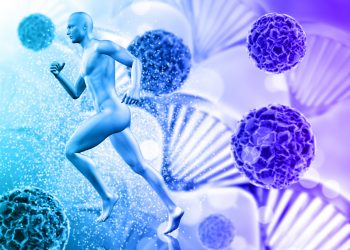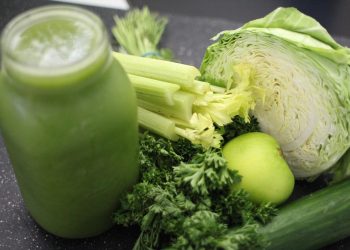Boosting DNA repair support naturally isn’t just a health craze; it’s a necessity for your well-being. Your DNA is the blueprint of your life, and keeping it healthy is essential for longevity and vitality. If you’re looking to enhance your body’s ability to repair itself, you’ve landed in the right place.
Contents
What is DNA Repair and Why It Matters
DNA repair is a natural process that fixes damage to the genetic material in your cells. Damage can occur due to various factors, including environmental toxins, UV radiation, and even the natural aging process. When your DNA isn’t repaired effectively, it can lead to serious health issues, including cancer and other chronic diseases.
Imagine your body as a finely tuned machine. Every part needs to work harmoniously for it to function optimally. When DNA repair falters, it’s like a part of that machine starting to rust. You want it to shine and operate smoothly, right? So, let’s dive into seven secrets that can naturally boost your DNA repair support.
1. Embrace Antioxidant-Rich Foods
Antioxidants are your body’s best friends when it comes to DNA repair. They combat oxidative stress, which can damage your DNA.
Powerhouse Foods to Include:
- Berries: Blueberries, strawberries, and blackberries are not just delicious; they’re packed with antioxidants.
- Dark Leafy Greens: Spinach and kale are rich in vitamins that support DNA health.
- Nuts and Seeds: Almonds and sunflower seeds are great sources of vitamin E, a powerful antioxidant.
Why It Matters
Incorporating these foods into your diet can significantly enhance your body’s ability to repair DNA. Aim for a colorful plate at every meal—this variety ensures you’re getting a range of essential nutrients.
2. Stay Hydrated
Water is vital for every single function in your body, including DNA repair. When you’re dehydrated, your body struggles to perform optimally, and that includes repairing damage to your DNA.
How Much Water Do You Need?
- Aim for at least 8 glasses a day, but adjust this based on your activity level and climate.
- Consider herbal teas and infused waters to keep things interesting.
Pro Tip
Set reminders on your phone or use a fun water bottle that tracks your intake. Hydration doesn’t have to be boring!
3. Get Moving
Regular physical activity is crucial for boosting DNA repair. Exercise increases blood flow, which helps deliver essential nutrients to your cells.
Best Types of Exercise for DNA Support:
- Aerobic Activities: Running, cycling, or swimming can improve overall health.
- Strength Training: Lifting weights helps maintain muscle mass and can aid in cellular repair.
- Yoga and Stretching: These practices reduce stress, which can negatively impact DNA repair.
The Benefits
Aim for at least 150 minutes of moderate exercise each week. Your body will thank you not just for the physical benefits but for the mental clarity and emotional balance as well.
4. Prioritize Sleep
Sleep is your body’s time to heal, regenerate, and repair DNA. When you skimp on sleep, you’re not just sacrificing your energy levels; you’re also hindering your body’s ability to repair itself.
Tips for Better Sleep:
- Create a Sleep Schedule: Go to bed and wake up at the same time each day.
- Limit Screen Time: Blue light can interfere with your sleep cycle. Try to unplug at least an hour before bed.
- Create a Relaxing Environment: Keep your bedroom cool, dark, and quiet.
Why Sleep Matters
Studies have shown that poor sleep quality can lead to increased DNA damage. Make sleep a priority, and you’ll notice a significant difference in your health and vitality.
5. Manage Stress Effectively
Chronic stress can wreak havoc on your body, including your DNA. When you’re stressed, your body releases cortisol, which can lead to inflammation and DNA damage.
Effective Stress-Management Techniques:
- Mindfulness Meditation: Spend just a few minutes a day focusing on your breath.
- Deep Breathing: This can instantly calm your nervous system.
- Connect with Nature: A walk in the park or time spent in your garden can work wonders.
The Impact
Reducing stress not only enhances your overall well-being but also allows your body to focus on repairing itself. Remember, a calm mind fosters a healthy body.
6. Incorporate Omega-3 Fatty Acids
Omega-3 fatty acids play an essential role in cellular health, including DNA repair. They are known to reduce inflammation and promote healthy cell membranes.
Sources of Omega-3s:
- Fatty Fish: Salmon, mackerel, and sardines are excellent sources.
- Flaxseeds: Ground flaxseeds can be added to smoothies or oatmeal.
- Chia Seeds: These tiny seeds are packed with omega-3s and are easy to incorporate into your diet.
Why You Need Them
Aim for at least two servings of fatty fish per week. Your DNA will thank you, and your heart will too!
7. Consider Supplements Wisely
While it’s always best to get your nutrients from food, some supplements can help support DNA repair. Consult with a healthcare provider before starting any new supplements.
Key Supplements to Explore:
- Vitamin D: Essential for immune function and cellular repair.
- Curcumin: This compound in turmeric has powerful anti-inflammatory properties.
- Resveratrol: Found in red wine, it may enhance DNA repair mechanisms.
The Bottom Line
Supplements are just that—supplements. They’re not a magic pill but can be a great addition to a well-rounded diet.
Bottom Line
Boosting DNA repair support naturally is not only achievable but essential for a healthy, vibrant life. From embracing antioxidant-rich foods to managing stress effectively, these seven secrets can transform your approach to health.
You have the power to take charge of your body and its repair processes. Start small, incorporate these tips into your daily life, and watch as your vitality soars.
FAQs
Q: How long does it take to see results from these changes?
A: Results can vary, but many people notice improvements in energy and overall well-being within a few weeks.
Q: Are there any foods I should avoid to protect my DNA?
A: Highly processed foods and excessive sugar can contribute to oxidative stress. Focus on whole, nutrient-dense foods instead.
Q: Can stress really affect my DNA?
A: Yes, chronic stress can lead to inflammation and DNA damage, making stress management essential for your health.
Make today the day you start prioritizing your DNA health. Your body deserves it!
Get Your FREE Natural Health Guide!
Subscribe now and receive our exclusive ebook packed with natural health tips, practical wellness advice, and easy lifestyle changes — delivered straight to your inbox.














